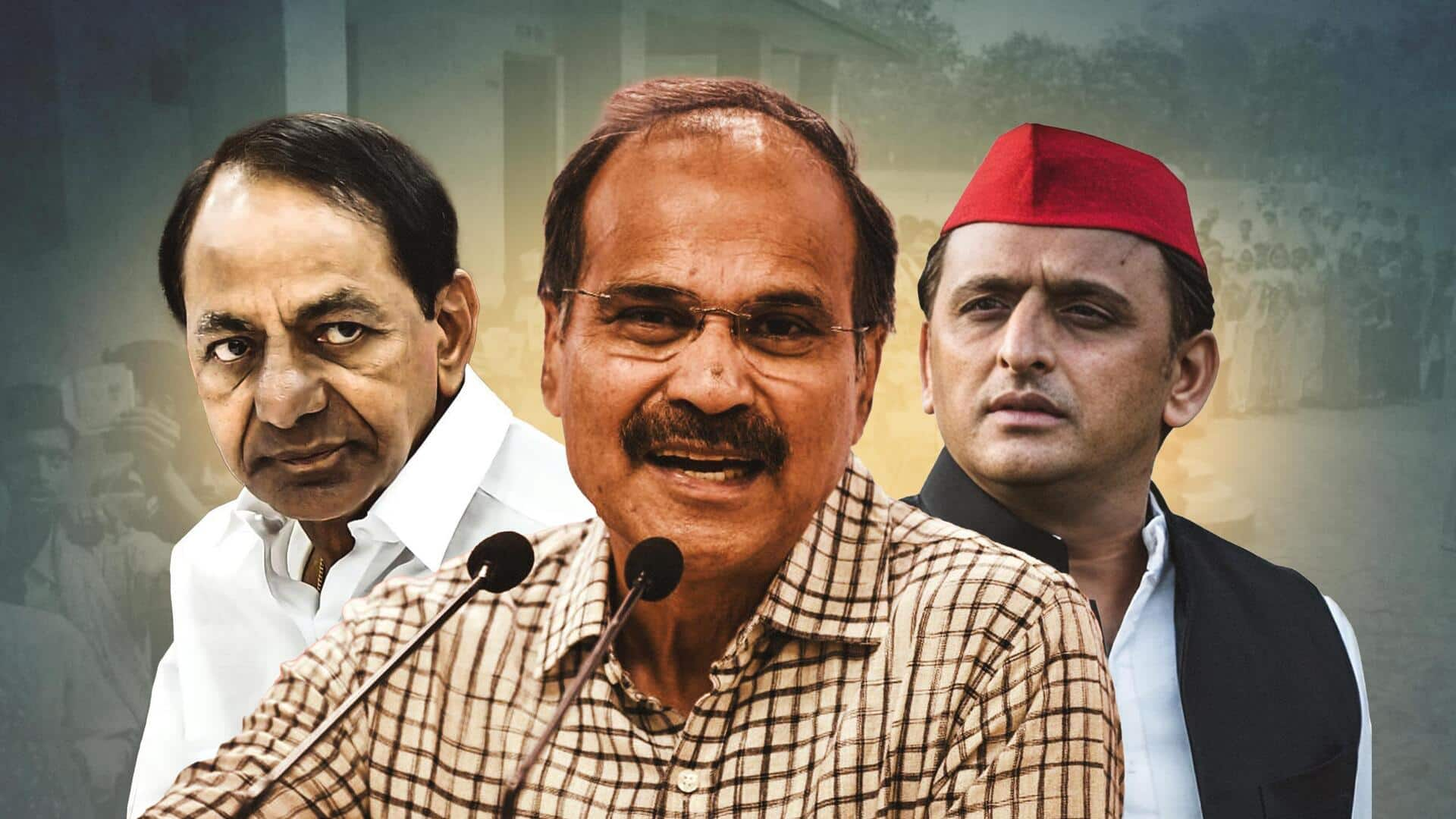
'One Nation, One Election': Centre's proposal faces opposition's heat
What's the story
Several opposition parties have come out openly against the Centre's "One Nation, One Election" proposal, terming it against the current constitutional norms. The reactions came after the Centre formed an eight-member committee headed by former President Ram Nath Kovind to examine the new proposal of holding simultaneous elections across the country. Meanwhile, Congress leader Adhir Ranjan Chowdhury declined to be part of this committee.
Context
Why does this story matter?
"One Nation One Election" refers to the simultaneous conduct of elections for the Lok Sabha, state assemblies, and panchayats across the country. For a long time, Prime Minister Narendra Modi and the saffron brigade have spoken about it on numerous occasions. Notably, the new system was also part of the Bharatiya Janata Party (BJP)'s manifesto for the Lok Sabha elections in 2014.
Statement
'One Election' not possible in current Constitution structure: Digvijaya Singh
Reacting to the formation of the panel by the Centre for "One Nation, One Election", senior Congress leader and Rajya Sabha MP Digvijaya Singh said, "This is not possible in the current structure of the Constitution." "Maybe their (BJP) intent is to change the Indian Constitution because from the beginning they have been against the Indian Constitution," he told reporters.
Criticism
Hold simultaneous polls in UP as experiment first: Akhilesh Yadav
Samajwadi Party chief Akhilesh Yadav, on the other hand, suggested conducting an experiment first to test the capability of the Election Commission. "An experiment is done before doing any big work we are suggesting that before implementing 'One Nation, One Election', the BJP government should hold simultaneous Lok Sabha and the Vidhan Sabha elections in Uttar Pradesh," he posted on X.
Twitter Post
Check Akhilesh's post in Hindi on X
हर बड़े काम को करने से पहले एक प्रयोग किया जाता है, इसी बात के आधार पर हम ये सलाह दे रहे हैं कि ‘एक देश-एक चुनाव’ करवाने से पहले भाजपा सरकार, इस बार लोक सभा के साथ-साथ देश के सबसे अधिक लोकसभा व विधानसभा सीटोंवाले राज्य उत्तर प्रदेश के लोकसभा-विधानसभा के चुनाव साथ कराके देख ले।…
— Akhilesh Yadav (@yadavakhilesh) September 2, 2023
Details
BRS is taken aback, BJD to support proposed law
Meanwhile, the Centre's action has reportedly irritated Telangana's ruling party, the Bharat Rashtra Samithi (BRS), which is preparing for the November-December Assembly elections in the state. On the contrary, the ruling Biju Janata Dal (BJD) in Odisha stated that it would support the proposed law for simultaneous elections. Former minister and senior BJD legislator Badrinarayan Patra claimed the party was unconcerned.
Panel
Who are on Centre's 8-member panel
On Saturday, the Centre constituted an eight-member committee, headed by Kovind, with Union Home Minister Amit Shah, Ranjan Chowdhury, former leader of the opposition in Rajya Sabha Ghulam Nabi Azad, and former Finance Commission chairman NK Singh as members. Other members of the committee include former Lok Sabha Secretary General Subhash C Kashyap, senior advocate Harish Salve, and former Chief Vigilance Commissioner Sanjay Kothari.
Insult
Not including Kharge 'insulting': Congress's Venugopal
The Congress has also expressed its displeasure over the absence of Rajya Sabha Leader of Opposition (LoP) Mallikarjun Kharge from the panel, adding that including a prior LoP instead is disrespectful to Parliament. "We believe that the High-Level Committee on simultaneous elections is nothing but a systematic attempt to sabotage India's parliamentary democracy," General Secretary KC Venugopal posted on X.
Arguments
Popular arguments against 'One Nation, One Election'
To hold concurrent elections, a constitutional amendment will reportedly be required. Some critics argue that changing the constitution to allow for simultaneous elections would fundamentally alter India's democratic and federal character since it is a "Union of States" with elected governments. They also mentioned logistics issues, such as the deployment of security troops at 700,000 voting sites across geographical and climatic zones.